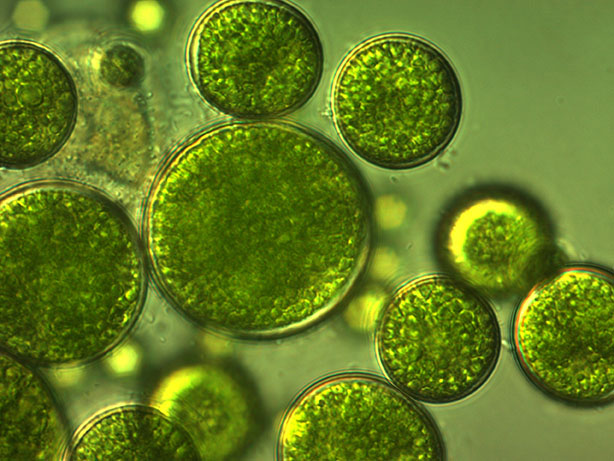

Algae are a diverse group of simple, plant-like organisms that live in water. They are photosynthetic, meaning they use sunlight to produce their own food. Algae are found in all types of water, from freshwater lakes and streams to saltwater oceans.
Algae come in a wide variety of shapes, sizes, and colours. Some algae are single-celled, while others are multicellular. Some algae are green, while others are red, brown, or even blue.
Algae are important for the environment. They produce oxygen, which helps animals and plants to breathe. They also provide food for many different animals, including fish, shrimp, and even some humans.
Algae can also be harmful to the environment. Some algae blooms can produce toxins that can kill fish and other animals. Algae blooms can also block sunlight, which can harm underwater plants and animals.
Here are some of the benefits of algae:
We are researching ways to use algae to produce biofuel.

Noun: algae.
Plural: algae.
Adjective: algal.
Synonyms: seaweed, phytoplankton, plant, organism.
Antonyms: animal, mammal, bird, fish.
The word "algae" comes from the Greek word algē, which means "seaweed". The word "algae" is used to refer to a large and diverse group of organisms that are typically photosynthetic and live in aquatic environments. Algae are not a taxonomic group, but rather a collection of different types of organisms that share some common characteristics.
What are some of the benefits of algae?
Question:
Explain the role of algae in the food chain.
Answer: